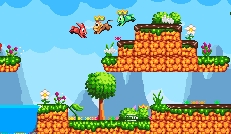Yay, Duck Game, I worked with Landon as the network engineer on the Switch port of that. It's a surprisingly fun brawl game for it's simplicity.
As for the reasons:
The biggest legitimate reason I can imagine is using less bandwidth. RemotePlay is much like a video call transmitting a lot of data, where a typical online game typically has far less data requirements. You're looking at about 10GB/hour to host a group game for RemotePlay, but probably on the order of 20MB/hour to host for the networked game. That can be a 500:1 difference or even bigger, so for metered connections it's a compelling reason.
As you mention, it enables more features like matchmaking. It also allows working on other platforms outside of the Steam ecosystem. It allows more advanced controls within a game based on networking details, geolocation, and so on.
Another would be to increase sales, every person needs to own a copy, but I doubt that's a reason here. In fact, I expect it's the OPPOSITE of this reason.
Another reason is to enable piracy. It is relatively simple to bypass Steam protections in most games, they're easily stripped with basic tools unless the game has taken major efforts to prevent it. It is far more difficult to bypass the protections for Steam's RemotePlay.
If you are getting the messages from players, I expect the big reasons are bandwidth reduction and enabling piracy.
As for if it is worth it, it depends on you and the code. The difficulty to implement will depend on the game. If it takes the rough equivalent of $30K in wages for you to implement, or $60K in equivalent wages, or $100K in equivalent wages, will it make that much more in sales? That's something we can't answer.









